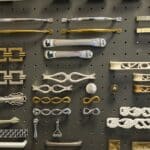
oday’s consumers can be pretty demanding. With so many options, they can be selective about when-and-how they want to shop. When customers take the time to visit a store, the least they expect is to purchase quality products at a fair price. However, many shoppers buy certain products or brands because they want to continue to make a social impact after the transaction is complete. They want to feel their purchases reflect their values and connect them to something more significant than the bags they are carrying home. Businesses that understand this type of value-based selling are a step ahead in building a loyal customer base.
While many home improvement retailers are adept at catering to the needs of their community, they may be overlooking an opportunity in the plumbing and electrical departments to build deeper connections. Making an extra effort to help customers identify and purchase eco-friendly products that are already in your inventory will show that your business is committed to preserving our natural resources. Promoting these products is a simple way to support those consumers who are looking for ways to conserve water and energy. However, just as important, these products can save them money.
It’s worth noting that 75 percent of millennials say they’re willing to pay a premium for eco-friendly brands and products. This is good news for retailers who can expand their inventory to promote shopping experiences that support causes popular with consumers. The willingness to pay more for certain products is true across generations.
- 89 percent of Baby Boomers are concerned
- 85 percent of all shoppers are concerned
- 37 percent of shoppers are extremely concerned
The good news, there is a long list of plumbing and electrical products that can help customers be eco-friendly, or go green. Most are essential, everyday items that are not intimidating or overwhelming for a person of ordinary skills to install. However, this does not exclude new technology that is specifically designed to conserve water or electricity.
How You Can Support Customers and Generate Sales
Start by letting customers know what products you stock that are eco-friendly. Reach shoppers online by dedicating a page of your website to the benefits of being eco-friendly and listing the plumbing and electrical products you sell online and in-store. Posting the U.S. Government Home Energy checklist (created by the Office of Energy Efficiency and Renewable Energy) and guide to dimmable lights will be helpful to consumers and generate traffic for your website.
Enhance the In-store Experience
Ask your sales team to direct shoppers to eco-friendly products. It can be as simple as providing customers with a list that indicates the aisle in which the product is located or placing hanging files with consumer literature in highly visible locations in the plumbing and electrical departments. Customers will find this information beneficial and recognize that your store is being proactive on saving energy. Even better, consider partnering with a local energy agency that conducts free home energy audits.
Plumbing Department
The average family uses 115,00 to 175,000 gallons of water a year. That’s a lot of water. Typically, plumbing products that can reduce water consumption can include toilet repair kits, low-flow showerheads, faucet aerators, hot water pipe insulation, and water filters. These are low-cost products that don’t require a lot of explanation to sell.
Toilets use 27 percent of water in the household and are a primary source of water loss. The average person uses the toilet a minimum of 3 times a day. The newer low-flow toilets have a powerful flush and save about 70 percent, or 3.2 gallons of water compared to their 5-gallon counterparts. A family of four that upgrades to a low-flow toilet will save 13,000 gallons of water per year.
You may also want to consider promoting water heaters if they are readily available through a supplier or stocked in your inventory. Options include electric models that are 100 percent efficient and transfer 100 percent of energy to water. Tankless gas models are 98 percent efficient and can reduce heating costs by 35 percent. Consumers may also want to purchase more popular types of gas water heaters. These are less efficient than the tankless version by 62 percent. However, hybrid models can offer 98 percent efficiency. Tank models are easy to install and are relatively inexpensive in comparison to electric or tankless gas models.
Electrical Department
When it comes to electrical products, labels matter. Seventy-four percent of consumers look for the EnergyStar® label on products, and 70 percent look for products advertised as being high-efficient. According to EnergyStar, replacing a home’s four most frequently used light fixtures, or bulbs with EnergyStar-approved products will save $45 per year.
Products consumers consider to be both eco-friendly and affordable are compact fluorescent bulbs (CFLs), light-emitting diodes (LEDs), energy-efficient outlets with timers, ceiling fans, light fixtures, decorative string lights, and outdoor lighting. These products are available in most hardware stores and home centers. Include them on any list you share with your customers.
Hardware Stores Have an Advantage
Plumbing and electrical products are core departments in every hardware store. These are items customers need to maintain or improve their homes. Your business is a fixture in the community, and you understand your customer’s values. Promoting eco-friendly products takes customer service to the next level.




